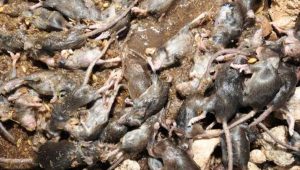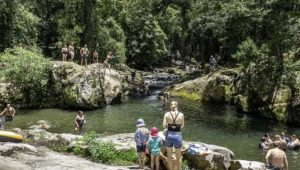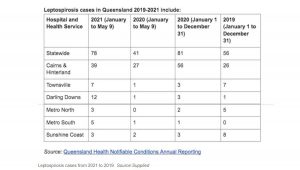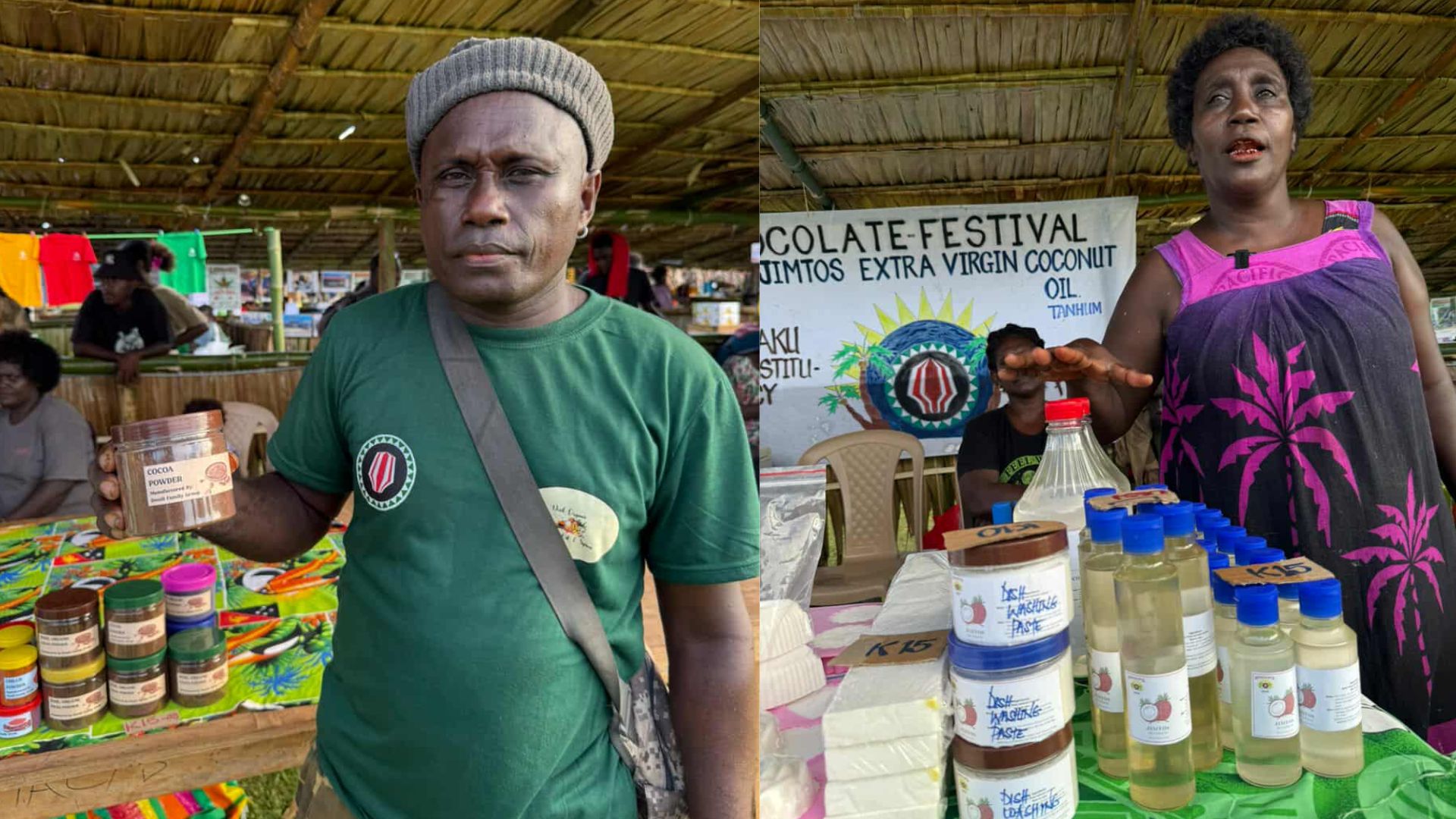The horror mouse plague has coincided with a spike in a rodent-borne bacterial disease in Queensland with case numbers almost doubling in 2021.
The Sunshine State has reported 78 cases of leptospirosis to date this year, compared with only 41 cases at the same time last year.
The case numbers might not seem like a lot, but the rate of infection has grown 70 per cent compared with the five-year average.
A total of 81 cases were reported in 2020, and 56 in 2019 according to Queensland Health.
The disease is caused by the leptospira bacteria, found in the urine of infected animals including mice, rats, cattle, pigs and dogs, Professor Keith McNeil, a spokesman for Queensland Health, said.
Leptospirosis has been reported in Cairns, the Hinterland and Darling Downs regions.
[caption id="attachment_8685" align="aligncenter" width="930"] Leptospirosis numbers have almost doubled in Queensland in 2021. The bacterial disease is spread through rodents. Source: News Limited[/caption]
Leptospirosis numbers have almost doubled in Queensland in 2021. The bacterial disease is spread through rodents. Source: News Limited[/caption]
Symptoms may include fever, headache, muscle aches, chills, vomiting and red eyes and can develop about 14 days after becoming infected.
“Symptoms can be similar to the flu so often it can be difficult to recognise and can be mistaken for other diseases,” he said.
“Serious disease such as meningitis, kidney failure, bleeding and respiratory complications can develop from leptospirosis infection if it’s not treated promptly, so it’s important to see your doctor immediately if you suspect you have had exposure to contaminated water, soil or mud, and develop these symptoms within a week or two,” he said.
“Leptospirosis is a notifiable condition that is most common in tropical and subtropical areas like northern Queensland and it can potentially cause serious illness,” Professor McNeil said.
“While leptospirosis is treatable with antibiotics, early diagnosis is still the key.
“The bacteria can enter the body through skin cuts or abrasions or through the lining of the mouth, nose and eyes by exposure to water, soil or mud contaminated with the urine from infected animals.
[caption id="attachment_8688" align="aligncenter" width="881"] Swimming in creeks, rivers or lakes can expose you to the urine of infected animals. Source: istock[/caption]
Swimming in creeks, rivers or lakes can expose you to the urine of infected animals. Source: istock[/caption]
“Agriculture workers are most at risk such as those working with animals or cane or banana farm workers, but it can also be caused by drinking or swimming in creeks, rivers or lakes contaminated by the urine of infected animals. Waters affected by heavy rain or flooding are especially risky.
“That means people who participate in camping, gardening, bushwalking and water sport pursuits can also be at risk of infection as they may have contact with contaminated water, soil or mud during these activities.”
He said because there are multiple strains of the bacteria, a person can be infected multiple times.

“As the wet season ends and we move into the cooler dry season, we would expect to see less cases of leptospirosis based on previous year trends,” he said.
Prof McNeil recommended several measures people could take to protect themselves from leptospirosis.
“If you work with animals, make sure you cover cuts and abrasions with waterproof dressing, wear protective clothing such as gloves and boots, shower after work, wash and dry hands frequently, and do not eat or smoke when handling animals,” he said.
Tips to protect yourself from leptospirosis
• Practice good hand hygiene and wash hands with soap properly and regularly, especially before eating or drinking
• People should treat or boil water especially if collecting from a source that could be contaminated by floodwater run-off
• Avoid swimming or wading in water where there is a chance of contamination with animal urine or floodwater run-off
• Cover cuts and abrasions with waterproof dressings, especially before coming into contact with soil, mud or water that may be contaminated with animal urine
• Wear protective footwear outdoors, especially when walking in mud or moist soil. Avoid walking barefoot on muddy surfaces or in muddy water, particularly if you have cuts or abrasions on your feet or legs
• Wear gloves when gardening
• Control rodents by cleaning up rubbish and removing food sources that are close to housing and thoroughly clean any areas where rodents have been.
SOURCE: News.com.au





